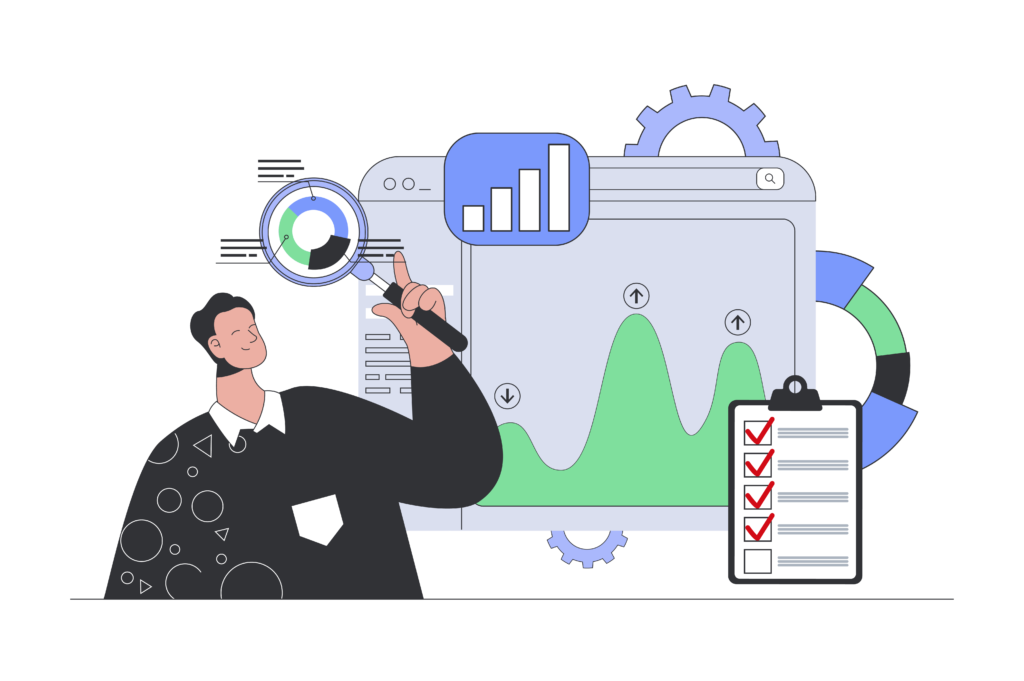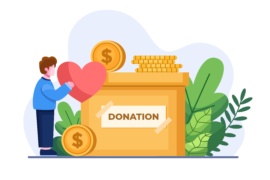In today’s fast-paced digital landscape, nonprofit organizations face increasing pressures to both maximize their impacts and operate efficiently with transparency. At the core of many successful nonprofit organizations lies a robust donor relationship management software system – a powerful tool designed to streamline engagement with supporters, coordinate fundraising campaigns, and track crucial metrics for organizational growth over time.
Donor relationship management software, also known as CRM (customer relationship management) systems, serves as the central hub for managing relationships with donors, fundraising efforts, and operational activities within nonprofit groups. It enables nonprofits to appropriately store, organize, and analyze supporter information, providing invaluable insights into behaviors, preferences, and patterns of engagement among donors.
In the nonprofit sector, where every donation has significance and every relationship holds value, leveraging the understandings gleaned from CRM systems is paramount. By capitalizing on the powers of data analytics and supporter intelligence, organizations can optimize their fundraising, cultivate stronger connections with donors, and drive sustainable growth for years to come.
Understanding CRM Donor Management Software: A Foundation for Nonprofit Success
CRM donor management software serves as the vital organizational system empowering nonprofits to cultivate meaningful connections with supporters. At its core, this digital platform is designed to consolidate and oversee benefactor data, interactions, and exchanges.
Essentially, CRM software acts as a comprehensive repository that combines benefactor particulars from diverse sources, such as online gifts, event registrations, volunteer activities, and communication touchpoints. This centralized compilation permits nonprofits to obtain a holistic view of their benefactors, allowing them to better recognize preferences, interests, and giving histories.
The principal features and capabilities of CRM systems tailored for nonprofits are diverse and customizable to meet the unique needs of each organization. These encompass:
- Benefactor Profiles: CRM systems furnish detailed benefactor profiles that capture indispensable information like contact details, giving histories, communication preferences, and involvement levels. This complete perspective allows nonprofits to personalize interactions and adapt fundraising appeals to individual benefactors.
- Communication Tools: CRM software offers robust communication tools, like email marketing automation, personalized messaging, and targeted outreach campaigns. These tools enable nonprofits to meaningfully engage benefactors, deliver timely updates and appeals, and cultivate enduring relationships.
- Fundraising Management: CRM systems streamline fundraising attempts by facilitating online gifts, handling fundraising campaigns, and tracking donation progress in real-time. Nonprofits can leverage built-in fundraising tools to generate compelling donation pages, establish fundraising goals, and dissect campaign performance.
- Analytics and Reporting: CRM software provides potent analytical and reporting capabilities that allow nonprofits to measure their fundraising effectiveness, track benefactor engagement metrics, and recognize trends and patterns. By examining these insights, organizations can optimize their fundraising strategies and make data-driven decisions.
Collecting and Organizing Donor Data: Building a Foundation for Effective Engagement
Data provides crucial insights that inform smart choices and meaningful connections for nonprofits in the digital world. At the core of this information-driven method lies carefully capturing and sorting donor details within constituent relationship management platforms, a pivotal first step in cultivating strong relationships and optimizing fundraising tactics.
The significance of gathering details in CRM systems cannot be overstated for charitable groups. By skillfully noting and aggregating supporter particulars like demographics, inclinations, and involvement history in an organized database, organizations can acquire an encompassing understanding of their donor population. This intelligence serves as the building blocks for customized communication, targeted donation drives, and prudent planning.
Various avenues exist for compiling donor particulars, each offering unique chances to involve backers and glean valuable understandings:
Donations made online, integrated with CRM systems, nimbly log contributions alongside specifics on donors. Tracking amounts, frequencies, and details provides significant insights into giving behaviors and preferences.
Events permit organizations face-to-face opportunities to engage donors and gather important information. Registration forms can capture attendee data, interests, and preferences, stored for future reach and segmentation.
Volunteers often deeply care about the cause and make up a valuable portion of the donor base. Noting volunteer acts and commitment levels within the CRM system can identify passionate supporters and cultivate stronger bonds through targeted correspondence and appreciation efforts.
Arranging and segmenting donor details is equally critical for effective involvement and fundraising success. By categorizing donors according to factors like giving history, passions, and communication preferences, organizations can tailor their outreach to precise supporter segments, boosting relevance and impact.
Segmentation allows charitable groups to deliver personalized messages, targeted donation appeals, and customized involvement chances that resonate more deeply with donors. Leveraging organized donor information, nonprofits can unlock CRM systems’ full potential, fostering stronger relationships, motivating donor loyalty, and ultimately, advancing their mission with greater effect and proficiency.

Analyzing Donor Behavior and Trends: Harnessing Insights for Strategic Growth
In today’s increasingly data-focused landscape, leveraging actionable insights from donor data is pivotal for nonprofit organizations striving to maximize impact and long term sustainability. Advanced CRM systems serve as a potent tool for dissecting donor behavior and identifying trends, arming nonprofits with invaluable intelligence to guide strategic planning, deepen donor relationships, and stimulate fundraising success.
CRM platforms offer robust analytic capabilities intentionally designed to help nonprofits uncover patterns, correlations, and variations within donor data. These analytic instruments empower organizations to delve deeply into their donor database, extract meaningful understandings, and translate raw numbers into concrete strategies for growth.
Nonprofits can capitalize on data analytics in several pivotal ways to comprehend donor conduct, preferences, and engagement habits:
- Donor Segmentation: CRM software enables organizations to categorize their donor base dependent on diverse factors, including giving history, donation frequency, and involvement level. By sorting donors into meaningful subgroups, nonprofits can tailor communication and fundraising strategies to meet the unique needs and preferences of each segment.
- Donation Trends: Analyzing donation tendencies over time provides nonprofits with valuable insights into seasonal giving habits, campaign effectiveness, and donor response to specific appeals. By distinguishing trends and patterns in donation behavior, organizations can optimize fundraising initiatives and distribute resources more productively.
- Engagement Metrics: CRM systems track a wide range of involvement measures, like email open rates, click-through rates, and social media interactions. By monitoring these metrics, nonprofits can gauge communication strategy effectiveness, pinpoint areas for improvement, and modify their messaging to better resonate with donors.
- Retention Analysis: Comprehending donor retention rates is pivotal for nonprofit sustainability. CRM software allows organizations to track donor retention data over time, identify influences on donor attrition, and execute strategies to boost retention rates. By examining retention information, nonprofits can prioritize donor cultivation efforts and nurture long-term relationships with supporters.
- Predictive Analytics: Some advanced CRM systems offer predictive analytic capabilities that utilize machine learning algorithms to forecast donor behavior and anticipate future donation trends. By capitalizing on predictive analytics, nonprofits can anticipate donor preferences, recognize high-value prospects, and tailor fundraising strategies to maximize impact.
Personalizing Communication and Engagement: Nurturing Donor Relationships with Tailored Outreach
In the realm of nonprofit fundraising, personalized communication is vital for cultivating meaningful relationships with supporters and encouraging lasting engagement. By understanding each donor’s unique motivations and tailoring outreach accordingly, organizations can inspire passion that transcends surface-level interactions.
At its core, personalized stewardship acknowledges that donors are complex individuals deserving of nuanced understanding. Demonstrating genuine care for one’s values and interests breeds connection on a human level, fostering loyalty through empathy rather than obligation. Stewardship is a two-way street requiring constant listening alongside speaking.
Advanced database systems play an integral role by compiling comprehensive portraits of every supporter over time. Insights into preferences, past responsiveness, and engagement history empower nuanced segmentation and targeted messages. Armed with deep insight into each individual journey, nonprofit leaders can nurture relationships through intimate yet impactful outreach.
Segmentation streamlines personalized communication by clustering donors exhibiting similar tendencies. From demographic factors to contribution patterns and cause prioritization, meaningful cohorts emerge. Customized updates directly engage priorities and passions, whether a longstanding focus on one program or exploratory interests as a first-time giver.
Dynamic content and automated workflows further strengthen customization. Personalized appeals, stories, and calls to action reference past interactions to inspire present action aligning with one’s values. Name addressals and preference-tailored content deepen impact through intimacy amid scale.
Key best practices for maximizing database potential include maintaining accurate records, leveraging data-driven segments, crafting nuanced personalization, automating custom flows, and continually optimizing based on testing and feedback. Relationships flourish when outreach resonates on an authentic level through empathy, understanding, and care for the complex individuals who make impact possible.
Optimizing Fundraising Strategies: Driving Impact Through Data-Informed Decisions
While the fundraising landscape continues to evolve, leveraging data and analytics remains pivotal for refining approaches and generating meaningful change. Donor relationship management platforms provide valuable resources for strategic review, promoting engagement and cultivating sustainable support.
One method for optimization involves identifying high-impact givers through analysis. Assessing contributions over time reveals dedication, exposing opportunities for deepening involvement. Personalizing correspondence and cultivating understanding nourishes connection, inspiring further participation.
Predictive insights also enhance targeting. Machine learning detects patterns in behavior hinting at likelihood, facilitating segmentation. Tailored communication reflecting variance maximizes returns as enthusiasm finds suitable expression.
Dividing constituencies by attributes allows customized appeals echoing diverse interests. For example, hands-on volunteers may rally behind grassroots campaigns while major investors appreciate exclusive recognition of commitment.
Performance measurement represents an additional advantage. Key indicators like income, retention and campaign activity provide a framework for evaluation, uncovering avenues for strengthening effect. Ongoing refinement guided by analytic findings empowers mission by optimizing methods and judiciously managing assets.

Conclusion
Nonprofits strive to further worthy causes, yet fundraising presents challenges. Werbylo assists through modernized efforts uniting CRM and free platforms. Captivating donors demands nuanced relations and campaigns tailoring messages individually.
Data provides key insights for strengthening bonds between organizations and supporters. Personalized contact nurtures engagement incrementally. Strategies evolve through iterative trials highlighting missions succinctly. Optimization emerges from experimenting respectfully with supporters’ generosity.
Werbylo invites optimizing present workflows and streamlining tasks. Signing up permits assessing personalized benefits. United under a common purpose, each contribution magnifies communal impacts however modest. Progress happens through cooperation not competition. Succeeding together uplifts all.




